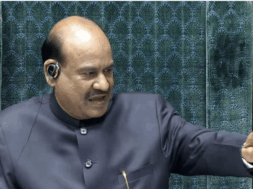
The case of Deloitte in the IL&FS crisis underscores the need to reassess and strengthen mechanisms for holding auditors responsible
In the complex world of financial oversight, auditors hold a position of utmost importance. Their role involves verifying financial statements and ensuring transparency, which in turn maintains the integrity of corporate practices. However, recent financial scandals have raised doubts about auditors’ accountability, particularly when their own involvement is suspect. The case of Deloitte in the IL&FS crisis underscores the need to reassess and strengthen mechanisms for holding auditors responsible.
The IL&FS Group Companies faced a series of defaults, accumulating a debt of over Rs. 91,000 crores. This crisis threatened India’s money markets, impacting corporate bond yields and triggering a stock market decline.
It’s vital to note that Deloitte served as the official auditor of IL&FS Financial Services Limited (IFIN) from 2008 to 2018. Deloitte then resigned from this role in 2018.
The government responded swiftly. The Department of Economic Affairs, Ministry of Finance issued a memorandum on September 30, 2018, urging the Ministry of Corporate Affairs to take action under the Companies Act, 2013, due to suspected corporate governance failures and manipulated accounts within IL&FS. This put auditors’ roles under scrutiny.
Subsequently, on June 10, 2019, the Ministry of Corporate Affairs filed a petition against IFIN’s auditors – BSR, Deloitte, and their partners – under Section 140(5) of the Act. The aim was to disqualify these entities from serving as auditors in any company for five years.
Deloitte contested this in court, arguing that they were no longer IFIN’s auditors. However, the Supreme Court, in a May 3, 2023 order, rejected Deloitte’s plea.
The Union of India contended that if auditors are involved in fraudulent activities or collusion, Section 140(5) of the Act of 2013 empowers the Central Government or concerned individuals to approach the NCLT for action. Section 140(5) also enables the NCLT to take suo motu action against auditors engaged in such conduct.
The government lawyer further argued in the Supreme Court that if an auditor resigns during Section 140(5) proceedings, the case doesn’t automatically halt. Even after a final decision, the second proviso of Section 140(5) can prevent the auditor from serving in that capacity for any company for five years. This could also lead to potential action under Section 447 of the Companies Act.
The IL&FS collapse exposed mismanagement and financial irregularities, prompting intense scrutiny of auditing processes. At the center of this investigation was Deloitte, a renowned audit firm accused of negligence and complicity in IL&FS’s downfall. This incident highlights the urgent need for an effective framework to scrutinize auditors, ensuring their commitment to transparency and accuracy remains steadfast.
Central to this saga was the Bombay High Court’s validation of Section 140(5) of the Companies Act. This provision holds auditors accountable beyond their resignation. However, the Supreme Court later overturned this interpretation, affirming auditors’ ongoing responsibility for their actions.
The Supreme Court emphasized that the legislature should provide penalties for auditors’ misconduct, stating, “The penalty of automatic disqualification of auditors, and their firm, including partners, for a period of five years from being the auditor of any other company, is a matter for the legislature/Parliament to decide.” The Court underlined auditors’ joint and severe liability with their firms under Section 140(5), underscoring the gravity of fraudulent behavior.
The Court also addressed concerns about the right to practice, affirming that fraudulent conduct by an auditor is a grave misconduct with consequential actions.
Regarding arguments of discrimination, the Supreme Court clarified, “Auditors’ roles cannot be equated with directors and/or management.” The Court stressed auditors’ crucial role in public interest and the significance of the “Audit and Auditors” chapter in the Act. Thus, Section 140(5) does not violate Article 14 of the Constitution of India.
The Companies Act mandates auditors to report fraud to the Central Government under Section 143(12). However, in the IL&FS case, the auditors might have fallen short of this duty.
Deloitte’s involvement in this case raises broader concerns about the accountability of major audit firms during financial crises. The potential repercussions for Deloitte and similar entities are substantial, given their international reach and resources. The case stimulates a crucial debate about balancing auditor accountability and avoiding prolonged legal battles that could hinder justice.
Beyond this case, the urgency for a comprehensive framework to “audit the auditors” emerges as a central theme. The economy relies on auditors acting as watchdogs, safeguarding against fraud and ensuring ethical business practices. Therefore, enhancing legal provisions and regulatory vigilance isn’t just a procedural matter; it ensures auditors remain watchful and immune to negligence or wrongdoing.
In a wider context, recent amendments to the Prevention of Money Laundering Act are pertinent. Including chartered accountants in anti-money laundering measures aligns with the government’s commitment to financial transparency and accountability.
The Deloitte case compels us to reexamine the foundation of auditor accountability. Trust is a two-way street, demanding auditors uphold stakeholders’ faith with unwavering commitment to their fiduciary duties. The IL&FS episode offers insight into the dangers of lax oversight and the potential fallout of auditors’ involvement. As we contemplate this case, we should embrace the lessons it imparts and strive for a financial landscape that remains transparent, responsible, and equitable.
This immediate question is- Is this the end of the road for Deloitte for doing business in India. The Supreme Court has closed the door for the Deloitte. Now it’s for the government to take a call.














